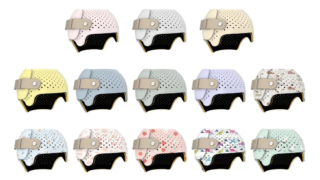[ad_1] Understanding Developmental Delays: A Guide for Parents
Developmental delays can be a source of concern and stress for parents. It’s hard to see your child struggle or fall behind their peers, and it’s natural to worry about what it means for their future. However, it’s important to remember that developmental delays are more common than you might think, and with the right support and interventions, many children are able to catch up and thrive.
What are developmental delays?
Developmental delays refer to a child’s failure to reach developmental milestones at the expected times. These milestones can involve physical, cognitive, social, and emotional skills. For example, a developmental delay could manifest as a child not sitting up, walking, or talking when they’re expected to, or it could involve difficulties with problem-solving, reasoning, or social interactions.
Causes of developmental delays
There are many factors that can contribute to developmental delays, including genetic conditions, premature birth, exposure to toxins or infections during pregnancy, birth complications, and environmental factors. It’s important to remember that every child develops at their own pace, and occasional lags in development are normal. However, if you have concerns about your child’s development, it’s important to seek evaluation and support from a healthcare professional.
Signs of developmental delays
It can be challenging to know whether your child is experiencing a developmental delay, especially in the early years when children develop at different rates. However, there are some common signs to watch for. These may include:
– Delays in reaching motor milestones, such as rolling over, sitting up, crawling, or walking
– Difficulties with speech and language development
– Challenges with social interactions, such as making eye contact, sharing toys, or playing with others
– Trouble with problem-solving, reasoning, and understanding cause and effect
– Behavioral issues, such as extreme tantrums or difficulty managing emotions
If you notice any of these signs in your child, it’s important to discuss your concerns with your pediatrician or a child development specialist. Early identification and intervention can make a big difference in supporting your child’s development.
Seeking support for your child
If you suspect that your child may have a developmental delay, the first step is to seek an evaluation from a healthcare professional. This may involve a developmental screening, which is a short test to see if a child is learning basic skills when they should, or a more comprehensive evaluation to assess your child’s strengths and weaknesses across different areas of development.
Once a delay has been identified, your child may be eligible for early intervention services through your state’s early intervention program. These programs provide a range of therapies and support services for children from birth to age three, including speech therapy, occupational therapy, and physical therapy. If your child is over three years old, they may be eligible for special education services through your local school district.
As a parent, it’s also important to educate yourself about your child’s specific developmental delay and to seek out support networks and resources. Connecting with other parents who have been through similar experiences can provide valuable insight and emotional support.
It’s okay to seek help
As a parent, it can be difficult to accept that your child may have a developmental delay, but it’s important to remember that seeking help early can make a big difference in your child’s future. With the right support and interventions, many children with developmental delays are able to make significant progress and lead happy, fulfilling lives.
Remember that every child is unique, and developmental delays do not define your child. With love, support, and the right resources, you can help your child reach their full potential.
FAQs
Q: How can I tell if my child has a developmental delay?
A: If you have concerns about your child’s development, it’s important to discuss them with your pediatrician or a child development specialist. They can help you evaluate your child’s development and determine if there are any areas of concern.
Q: What should I do if my child is diagnosed with a developmental delay?
A: If your child is diagnosed with a developmental delay, the first step is to seek an evaluation and support services through your state’s early intervention program or your local school district. It’s also important to educate yourself about your child’s specific developmental delay and to seek out support networks and resources for parents.
Q: Will my child be able to catch up to their peers?
A: With the right support and interventions, many children with developmental delays are able to make significant progress and catch up to their peers. Early identification and intervention can make a big difference in supporting your child’s development. Remember that every child develops at their own pace, and with love and support, your child can reach their full potential. [ad_2]
 頭の形
頭の形 赤ちゃんの首が曲がる?斜頸の原因と確認方法














コメント